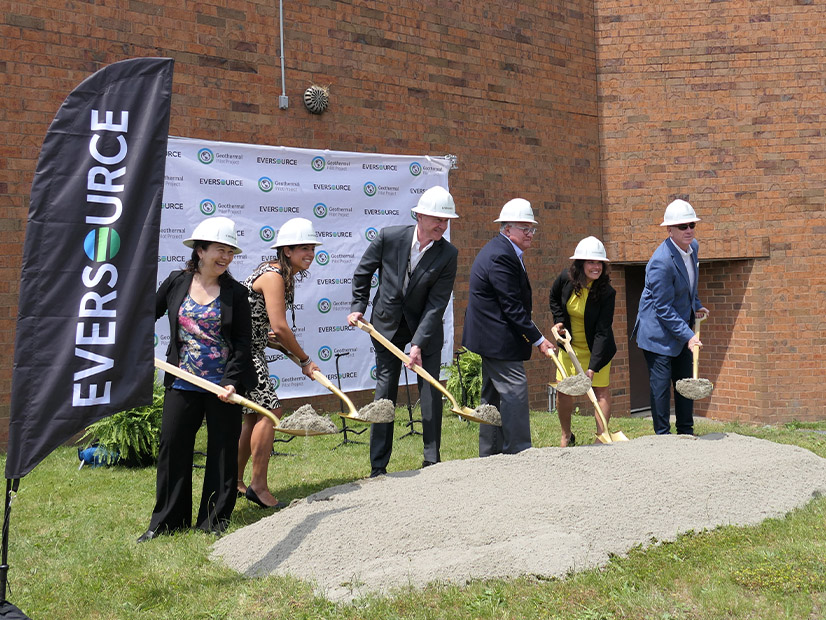FRAMINGHAM, Mass. — Eversource broke ground on the first utility-led networked geothermal demonstration project in the country last week, launching an alternative to fossil fuel heating that climate advocates hope will eventually be able to replace much of the state’s natural gas network.
The project is a collaboration between Eversource and climate nonprofit HEET and is one of two ongoing networked geothermal projects being developed by utilities in the state. Projected to begin operating this fall, the geothermal system will provide heating and cooling to about 140 customers, including homes, low-to-moderate income apartments, businesses and a fire station.
“This is what fighting climate change on a local level looks like,” an Eversource spokesperson told the attendees of the groundbreaking ceremony.
Eversource said it expects to significantly reduce energy use and emissions in the area, projecting an approximately 75% reduction in energy use for Framingham Housing Authority renters. The U.S. Department of Energy recently awarded the project $715,000 to expand to an additional neighborhood.
“This project has been a source of envy across the state,” said Rep. Priscila Sousa of Framingham.
To improve understanding of the challenges and potential for future projects, HEET is leading a team of researchers to study and model the technology used in the geothermal system, funded by a $5 million grant from the Massachusetts Clean Energy Center and to be conducted independent of industry oversight.
Zeyneb Magavi, co-executive director of HEET, said this project will provide valuable insight on the logistical and cost constraints to scaling up the technology.
“There’s a lot of potential savings that have already been identified if we get this going to scale,” Magavi told RTO Insider.
Magavi said drilling is one major component of networked geothermal projects that will need extra attention to deploy the technology across the state.
“Drilling, drills, drillers — that aspect of the cost is really a significant portion, and the price per linear foot varies widely across the country,” Magavi said, adding that ordering a drill for a networked geothermal project currently takes about a year and a half.
“Having identified that supply chain problem — and that is a core driver of cost — we’ve actually gone ahead and submitted an effort to the Department of Energy for the Defense Production Act on heat pumps to try to open up that supply chain and bring a drill assembly and driller training center for excellence to New England.”
Magavi emphasized the potential of networked geothermal to help low-income gas customers transition away from fossil fuels.
“If we do a house-by-house transition, we are absolutely going to end up with an equity challenge whereby renters and low-income customers are going to be left on a gas system with rising prices,” Magavi said, noting that both pilot projects are being developed in neighborhoods with significant populations of low-income residents.
William Akley, president of gas business at Eversource, called the demonstration project “a great platform for the workforce transition,” which he said is critical to the company, though no representatives from organized labor groups spoke at the event.
“Operating, constructing and maintaining an underground geothermal network has a lot of parallels to what our industry and what our employees do every day,” Akley said.




